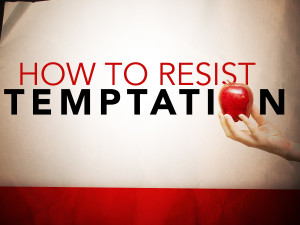Temptations
Sermon by Rev. Steven McClelland on Luke 4: 1 – 13. Focus on how to deal with temptation and over come them. Check out the choir following the sermon.
After being baptized by John in the river Jordan, Jesus went off alone into the wilderness where he spent forty days asking himself what it means to be Jesus. During Lent, Christians are supposed to ask the same question of themselves.
I think temptation is one of those things we have a hard time talking honestly about in the church. I think we worry the conversation will go in one of two less-than-helpful directions. Either we’ll take the cultural cue and move immediately to a “racy” conversation where the talk is all about sex, power, and drugs or whatever folks find most provocative or we’ll move in a more generalized way and speak about temptation in huge, general terms filled with moralistic vim and vigor but has nothing really to do with us in any meaningful way.
So when we look at the temptation story of Jesus we see how the tempter uses very concrete and specific temptations that all revolve around the same dynamic, which is to sew mistrust: you’re hungry why not just do this one thing for yourself, you know you will not have enough in this life unless you secure your own future and God is a great concept but is God really trustworthy with your future much less your life?
In each case Jesus replies with scripture. And over the years a lot of preachers have used this to show people why it’s important to know their Bibles and while I’m all in favor of a more literate congregation I wonder if it’s not so much that Jesus quotes scripture to deflect temptation as it is that Jesus finds in scripture the words to give choice to his trust in God. Because at the heart of each reply to the devil, is Jesus’ absolute trust in and dependence on God for his identity and future.
And that’s what I would like to lift up for our people this week. There is a crucial link between trust and temptation. To the degree that we trust God for our daily needs, for our sense of purpose, for our identity as a child of God, the temptations of the world have, frankly little appeal. But to the degree that we allow our natural insecurity to lead us to mistrust God, we are open to the possibility, appeal, and temptation of the proposition that it is all up to us, that God is not able to provide and so we’d better take matters into our own hands.
But it’s not enough to just say that. For just saying that can make people feel worse, precisely because all of us deep down know we do not trust God fully. So what I want to do is to invite you to strengthen your trust through practice. And there’s no time like the present to try this out.
What I want you to do is get up from where you are seated and find someone you don’t know very well and I want you to go and sit next to that person and take your 3X5 cards and a writing implement with you.
Now I want you to write down on one side of the card something that is important to you for which you feel confident of God’s support: maybe it’s the love of your family, or a job, or your health. Those things that are not givens – but rather things that matter that you do not worry about, yet you trust God with them. Label this side of your card – TRUST.
Then, on the other side of the card, write down one thing that is difficult to trust God with right now. Maybe it’s a particular relationship, or a job, or something that is challenging you at work or home or something that you worry about right now. Now label this side of the card – MISTRUST.
Now take a moment to compare these two things: why is it easier to trust God with one of them and not the other? And lastly if you are feeling really brave I invite you to share these things with the person you are seated next to so that we can learn from each other about what makes trusting God easier and what makes trusting God harder.
Now last I want you to commit either to taking the card with you and put it where you can see it everyday during Lent or put it into the offering plate. If you take it with you look at each day during Lent and if you put it in the offering plate we will use these concerns and joys in our prayers throughout Lent.
To hear yourself try to answer questions like these is to begin to hear something not only of who you are but also of what you are becoming and what you are failing to become. Lent can be a hard time if we are honest in our personal reflections but it can also be a time of great growth. Lent may begin with ashes and a sense of our frailty and failings but remember it ends with Easter and the promise of new life.
Trust is at the heart of our relationship with God and with each other. It’s not always easy, and when trust is missing temptation is just waiting to pounce on us. For this very reason, I think, we need the support of the community to grow in our ability to trust and live out of a sense of abundance and courage rather than a sense of scarcity and fear. Amen

